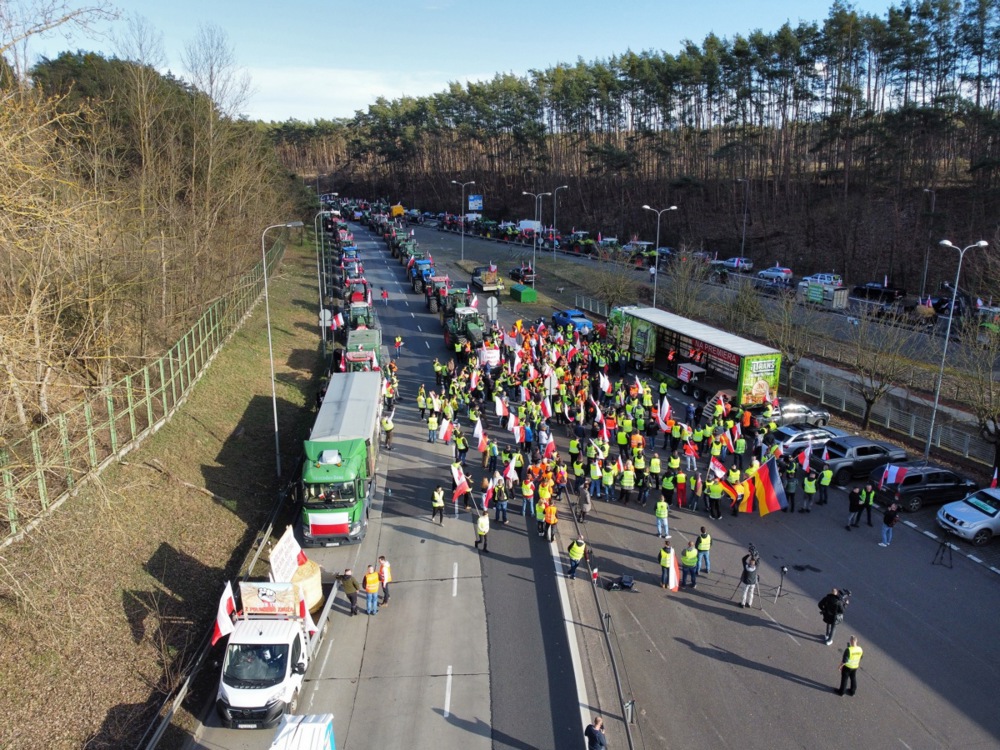Farmers in Poland are holding a 24-hour blockade of the A2 Autobahn near the Świecko border crossing with Germany. Although the protest may be a warning shot for now, any potentially longer protest represents a major economic threat.
The farmers’ demonstration, which began at 1:00 p.m. on Sunday, Feb. 25, and was due to end at 1.00 p.m. today, marks a significant escalation in the ongoing demonstrations by Polish farmers aimed at the EU’s Green Deal and seeking restrictions on the importation of agricultural goods from Ukraine.
Initially, the protest was to last nearly a month, but after negotiations, the organizers agreed to a one-day action. Approximately 1,500 individuals and hundreds of agricultural machines blocked traffic on this critical transport artery, which runs through major cities in Poland, such as Warsaw, all the way to Berlin in Germany and beyond.
The decision to shorten the blockade came after appeals from various stakeholders, including the Employers Association Transport and Logistics Poland, which highlighted the potential risks to the national economy and the livelihoods of other Polish entrepreneurs.
Polish police advised motorists to plan alternative routes. Heavy vehicles were redirected to the S3 expressway in the direction of Zielona Góra to cross the border at Gubinek, while passenger vehicles on the A2 heading to Germany used the Rzepin junction. However, the busy Świecko junction was closed, with traffic diverted to other roads.
German farmers were also reported to be planning a blockade on the bridge at the Słubice border crossing, further complicating the situation.






